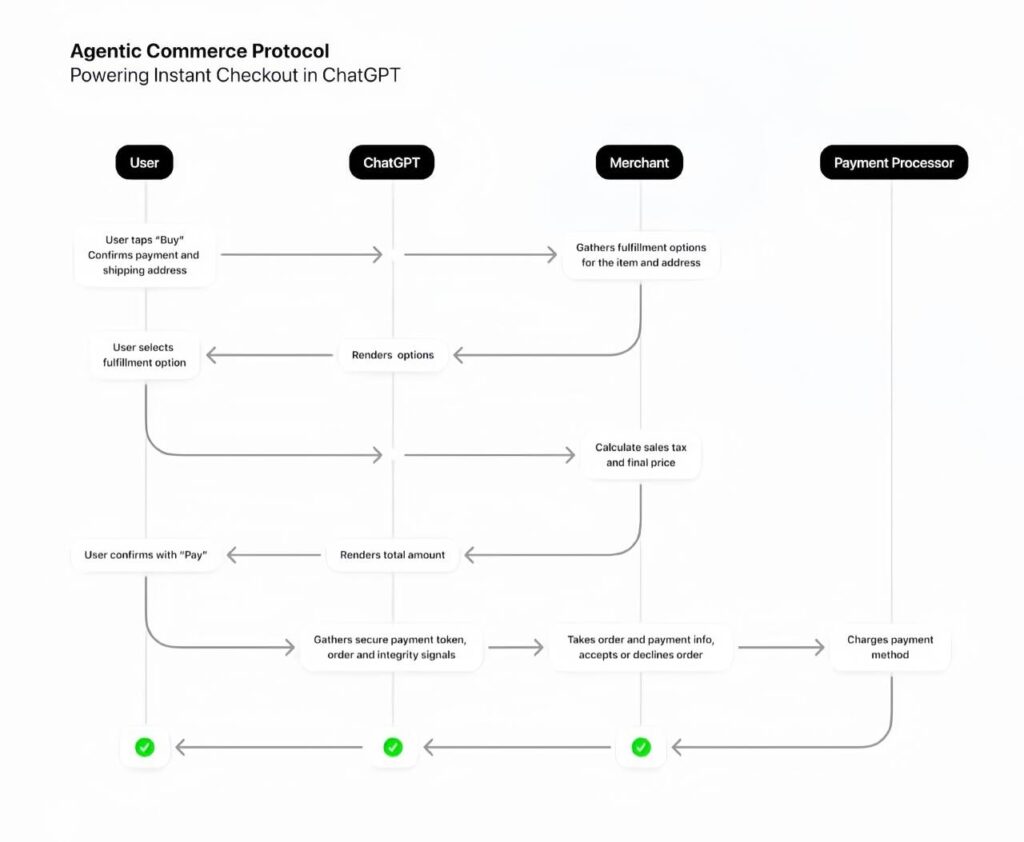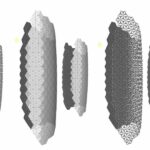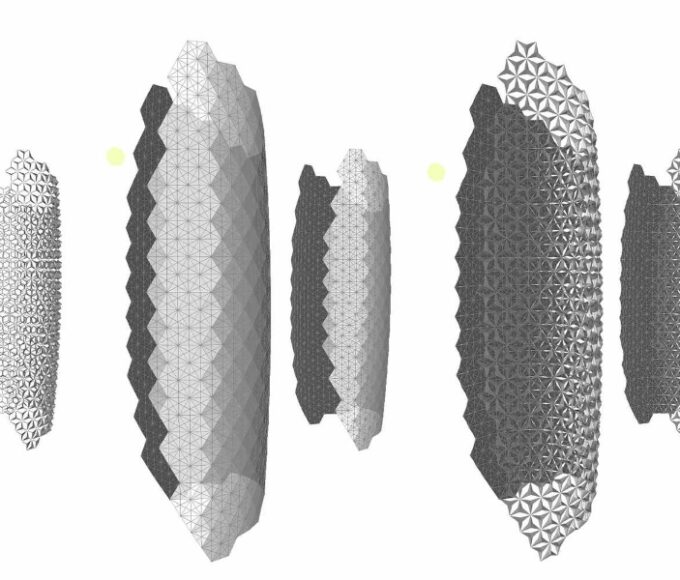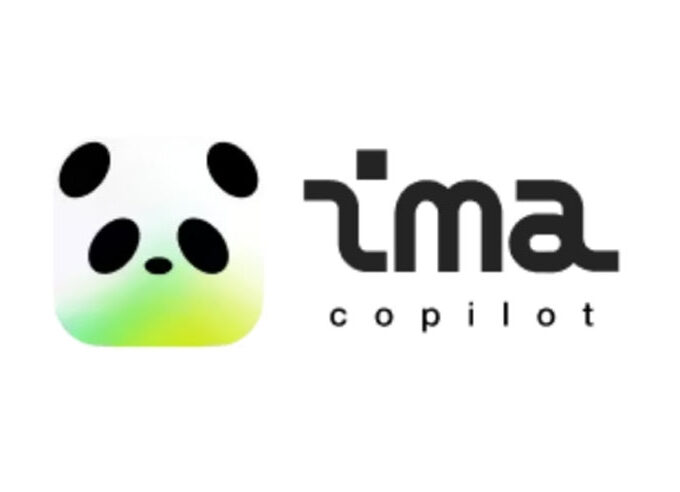On September 29, OpenAI announced the launch of its “Instant Checkout” feature on its official website, allowing users to complete product purchases directly within ChatGPT. This move marks the official transformation of AI chatbots into “all-in-one shopping and payment devices” and hits the “accelerator button” for the evolution of online shopping formats.
Currently, ChatGPT users in the United States can already shop on the Etsy platform and place orders on the Shopify platform directly within the chat interface. In terms of user experience, this feature represents a comprehensive upgrade to ChatGPT’s existing shopping capabilities: previously, when users asked shopping-related questions, ChatGPT only displayed product information, images, reviews, and merchant links. Now, users no longer need to leave the chat interface—by clicking the “Buy” button, confirming order details and shipping address, and completing payment via Apple Pay, Google Pay, Stripe, or credit card, they can close the entire shopping loop seamlessly.
In terms of user coverage, the “Instant Checkout” feature is now available to ChatGPT Pro and Plus paid users, as well as free users who are logged in. At this stage, it supports purchases from U.S.-based Etsy sellers; meanwhile, over 1 million Shopify merchants, including brands such as Glossier, Skims, Spanx, and Vuori, will integrate this feature in the near future.
Open-Sourcing Core Protocol to Build an AI E-Commerce Ecosystem
Another key move by OpenAI in this launch is the announcement to open-source the “Agentic Commerce Protocol” (ACP for short). Co-developed by OpenAI and Stripe, this protocol serves as the technical core of the “Instant Checkout” feature, with a clear operational process that connects users, ChatGPT, merchants, and payment institutions: after a user clicks “Buy,” ChatGPT collects product fulfillment options and address information and presents them to the user; once the user makes a selection, the system calculates sales tax and the final price; after the user confirms the payment, ChatGPT collects secure payment tokens and other information, then synchronizes it to the merchant and payment institution to complete order processing and payment collection. This development is a highlight in the AI latest news, as it signals a major step toward standardizing AI-driven commercial interactions.

The open-sourced ACP will significantly lower the threshold for merchants to integrate with ChatGPT, enabling other merchants and developers to incorporate the “agent checkout” function into their own platforms. Will Gaybrick, President of Technology and Business at Stripe, stated that Stripe is building economic infrastructure for the AI field and, by redesigning the e-commerce system, aims to create a brand-new AI-driven shopping experience for billions of users.
Notably, OpenAI has emphasized the platform’s fairness and security: all products displayed on ChatGPT are recommended naturally, with no sponsored content, and are only ranked based on relevance to user needs; the platform only charges merchants a small fee for completed orders. Additionally, the entire process of order processing, payment operations, and product fulfillment is handled by merchants through their existing systems, while ChatGPT only acts as an “intelligent intermediary” to transmit information—this helps alleviate users’ concerns about the security of their private payment information.
The launch of this feature not only brings a seamless shopping experience to consumers but also has the potential to reshape the power dynamics in the e-commerce sector. For a long time, Google and Amazon have been the “gatekeepers” in the retail product discovery process, and they have repeatedly used their dominant market position to prioritize the promotion of their own or partner products, or charge merchants high fees to maintain product exposure. However, if more consumer behavior shifts to AI chatbots in the future, companies that develop these bots will gain the authority to decide which products to display and set fee rates—and OpenAI is expected to leverage this opportunity to become a “rule-maker” in the AI e-commerce ecosystem.
Currently, competition in this field has quietly begun. Google recently launched the “Agent Payments Protocol” (AP2 for short) for AI agent-based shopping, and the competitive stalemate between OpenAI and Google in the AI e-commerce track is likely to intensify further.












